Taiwan Tech team launches interactive board game to boost kids’ focus and visual skills with light science.
Amid the wave of digitalization, an increasing number of preschool children are being exposed to electronic devices too early, leading to issues such as poor visual development and lack of concentration. In response to this trend, a startup team supported by Taiwan Tech’s Business Incubation Center – ToSky Design - has collaborated with occupational therapists and ophthalmologists to develop an innovative solution. By integrating principles of color and light science into an interactive picture book and color-based board game, and incorporating STEAM education concepts, they created the “Vitopa Children’s Visual and Attention Development Kit”. This gamified design aims to enhance visual perception and focus, offering a new approach to supporting healthy growth for children in the digital age.
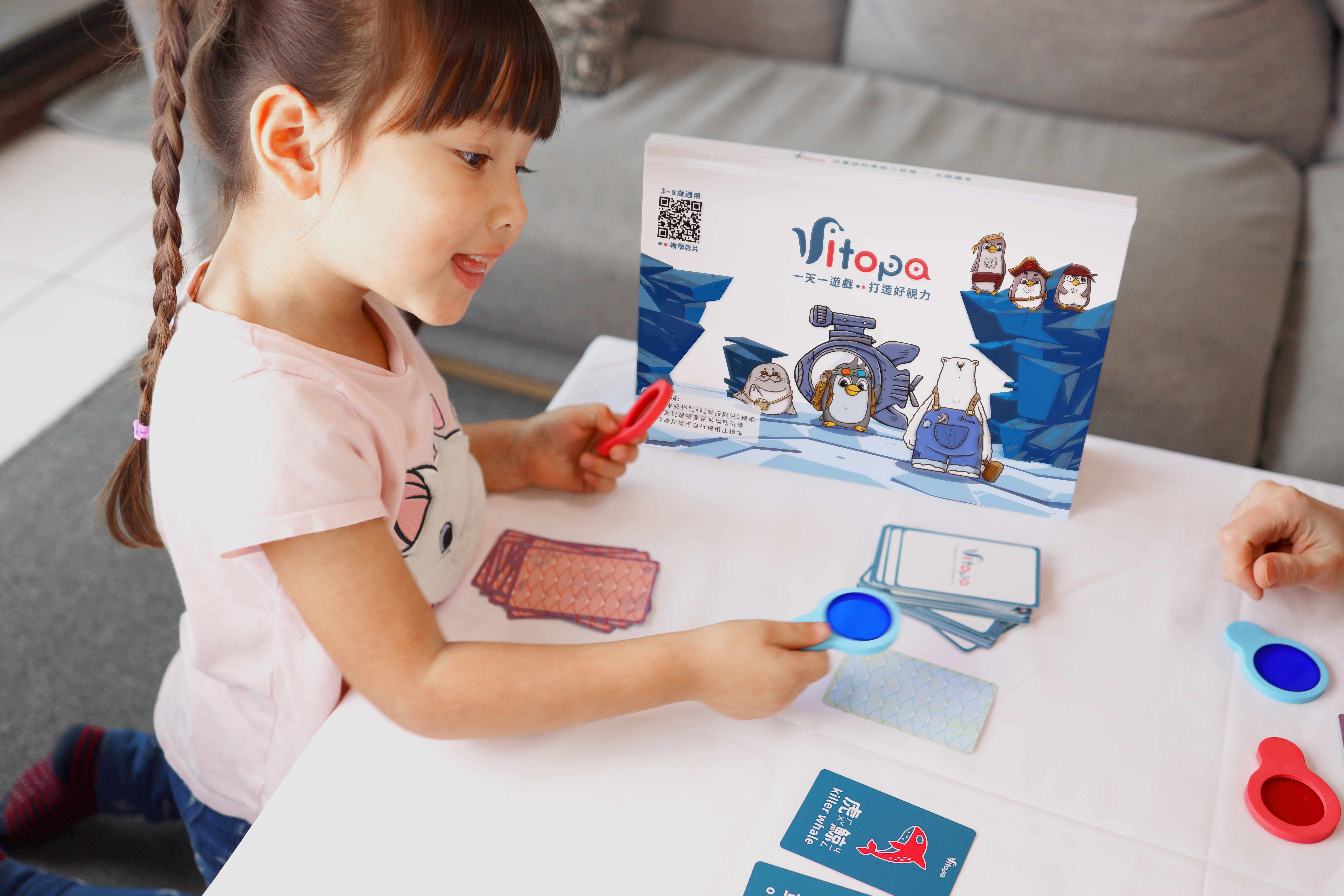
The guidance team of Taiwan Tech’s Business Incubation Center, ToSky Design, has integrated principles of color and light science into an interactive picture book and color-based board game to develop the “Vitopa Children's Visual and Attention Development Kit”, using gamified design to help children improve visual perception and concentration.
Vitopa incorporates four visual attention games and scientific literacy into a picture book storyline, specially designed for children aged 3 to 8. Games such as “Treasure Hunt Mission”, “Grating Puzzle”, “Color Light Maze” and “Color Light Match” include 28 themed tasks and multiplayer board game cards, guiding children on an underwater adventure. By combining color exploration lenses, magnifiers, and cards, the kit encourages activities like color recognition, visual reasoning, memory, and focus training - helping children enhance their attention span and cognitive abilities through play.
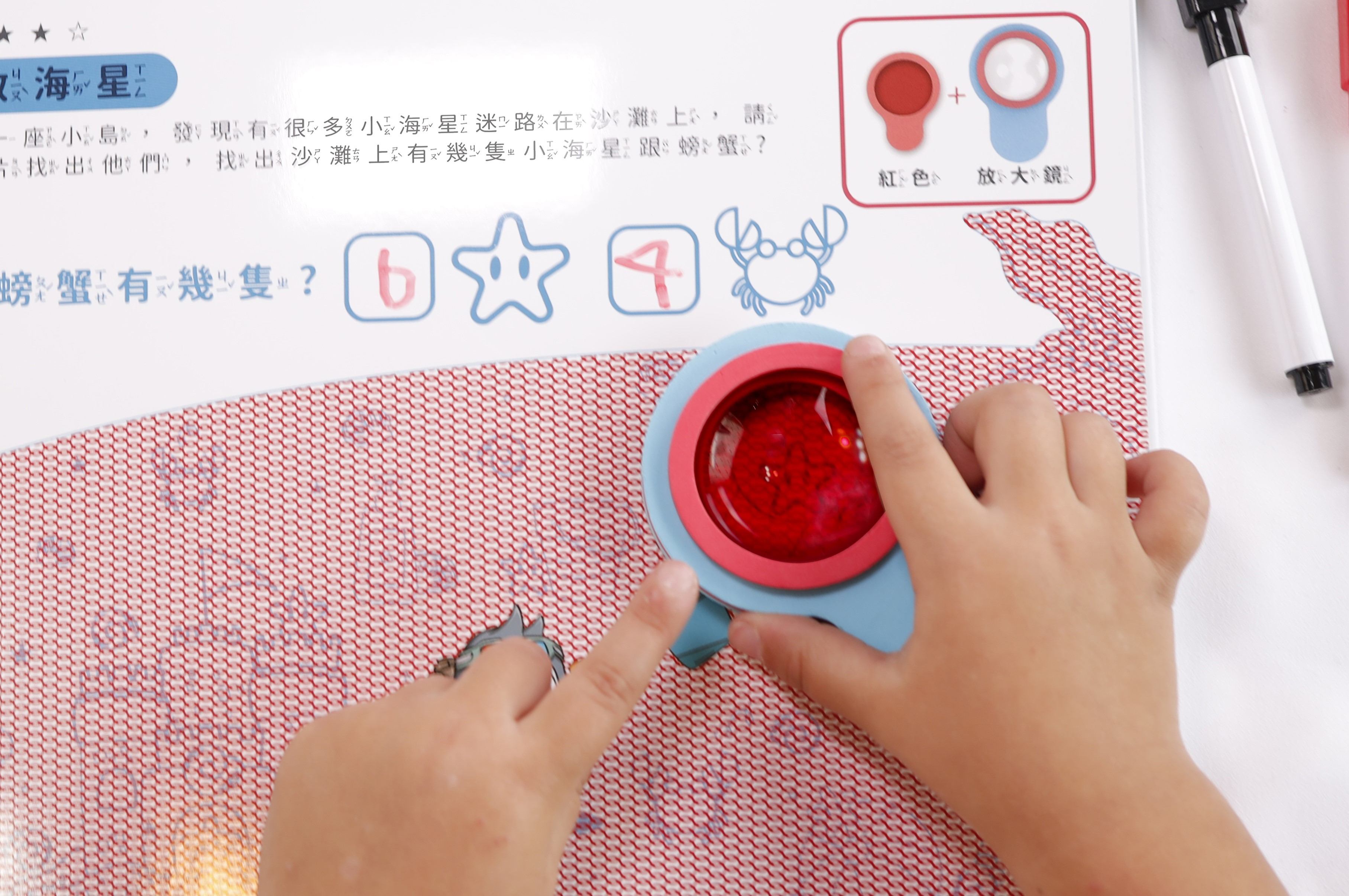
The visual attention game “Treasure Hunt Mission” combines a color exploration lens and magnifier, allowing children to discover hidden treasures through the principles of color and light during play.
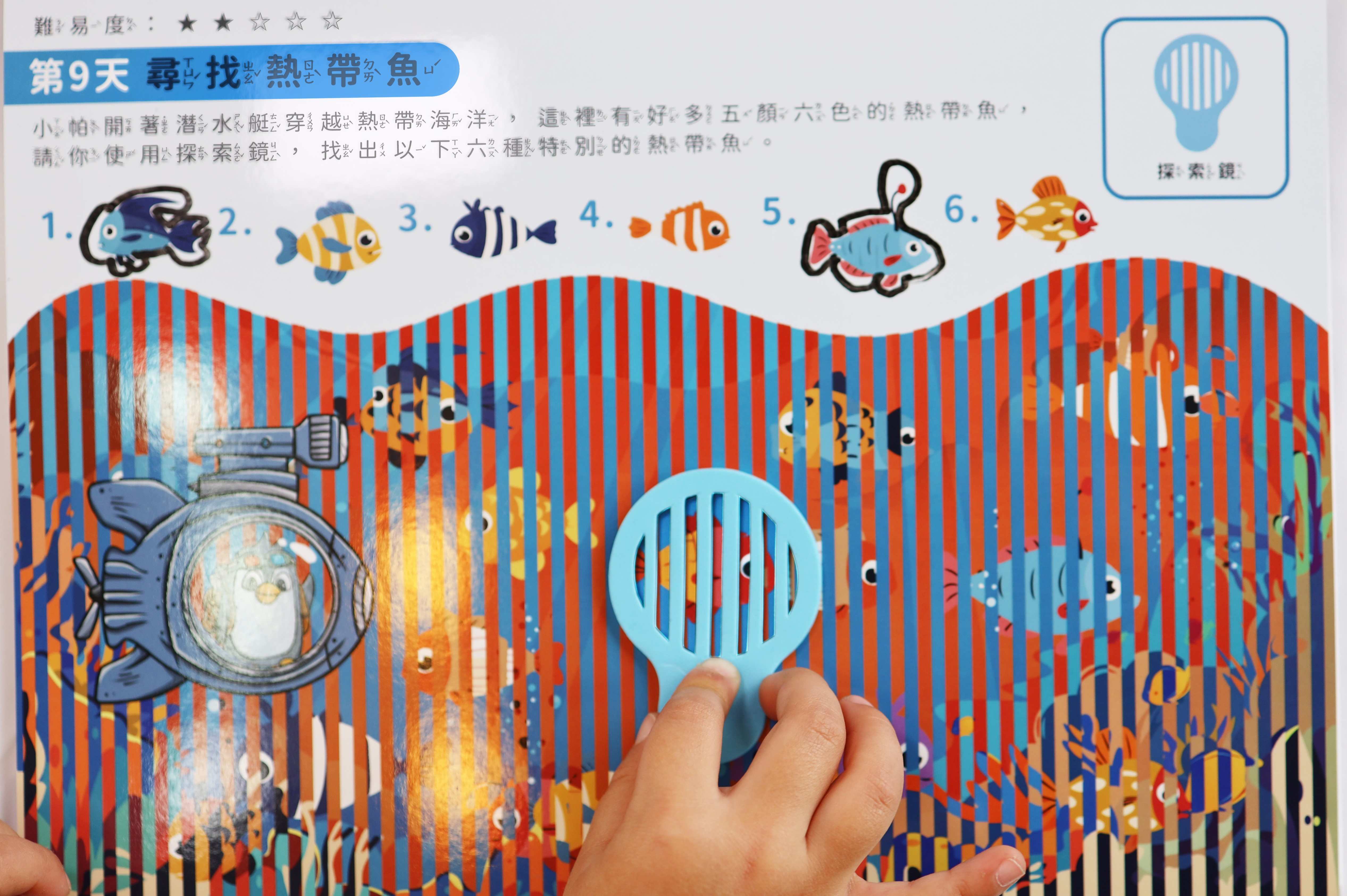
The picture book also uses the principle of optical grating to train children's visual discrimination and image reasoning skills.
The first and second generations of Vitopa focused primarily on visual perception training. The latest third generation has been optimized through multiple iterations to incorporate attention training based on occupational therapy. The founder of ToSky Design Chien-Chen Lai explained, “It was actually occupational therapists who discovered that this product works well as an early intervention tool. So, we integrated the picture book storyline, color-light principles, and board game design to help children learn through play and reduce the resistance often associated with traditional therapy.”
To better meet the needs of parents and users, the team conducted a survey and found that over 80% of parents were concerned about their children’s lack of focus. With screen-based parenting becoming increasingly common, and the constant stimulation from short videos and digital games possibly affecting children’s attention spans, the team added ocean animal exploration cards and bilingual word cards to the product. These allow siblings, friends, and even parents to join the game, enhancing competitiveness and fun while extending replay value and encouraging more interaction. Pediatric occupational therapist Uni noted that Vitopa is a rare product that combines science and gameplay while helping children develop over seven different cognitive abilities. Uni also recommends parents use it together with their children to grow and learn through play.
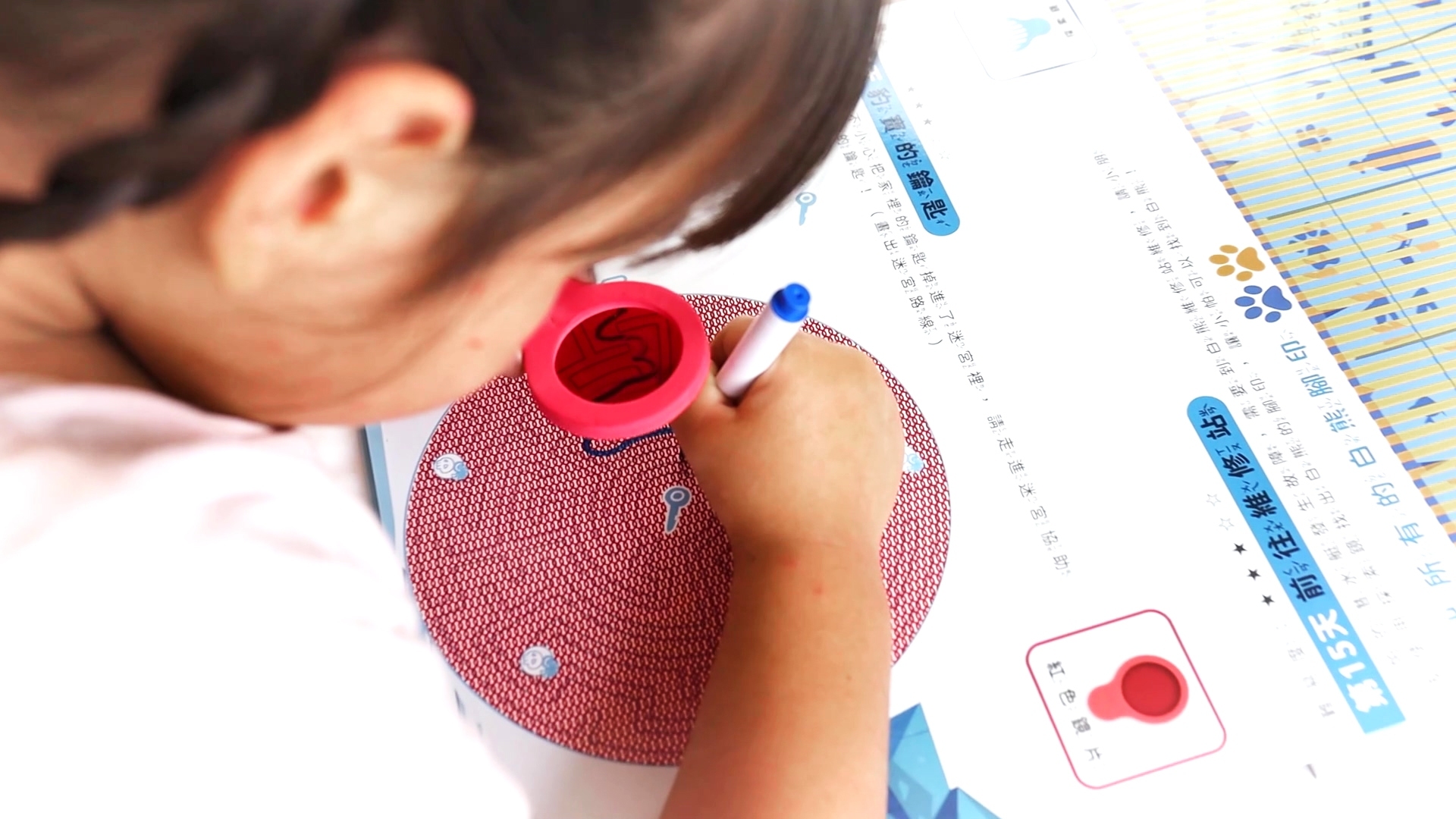
“Color Light Maze” uses special color-light effects along with a color exploration lens to guide children in finding hidden maze exits. The game incorporates reusable, erasable water-based markers, allowing kids to play repeatedly while developing spatial reasoning and visual memory skills.
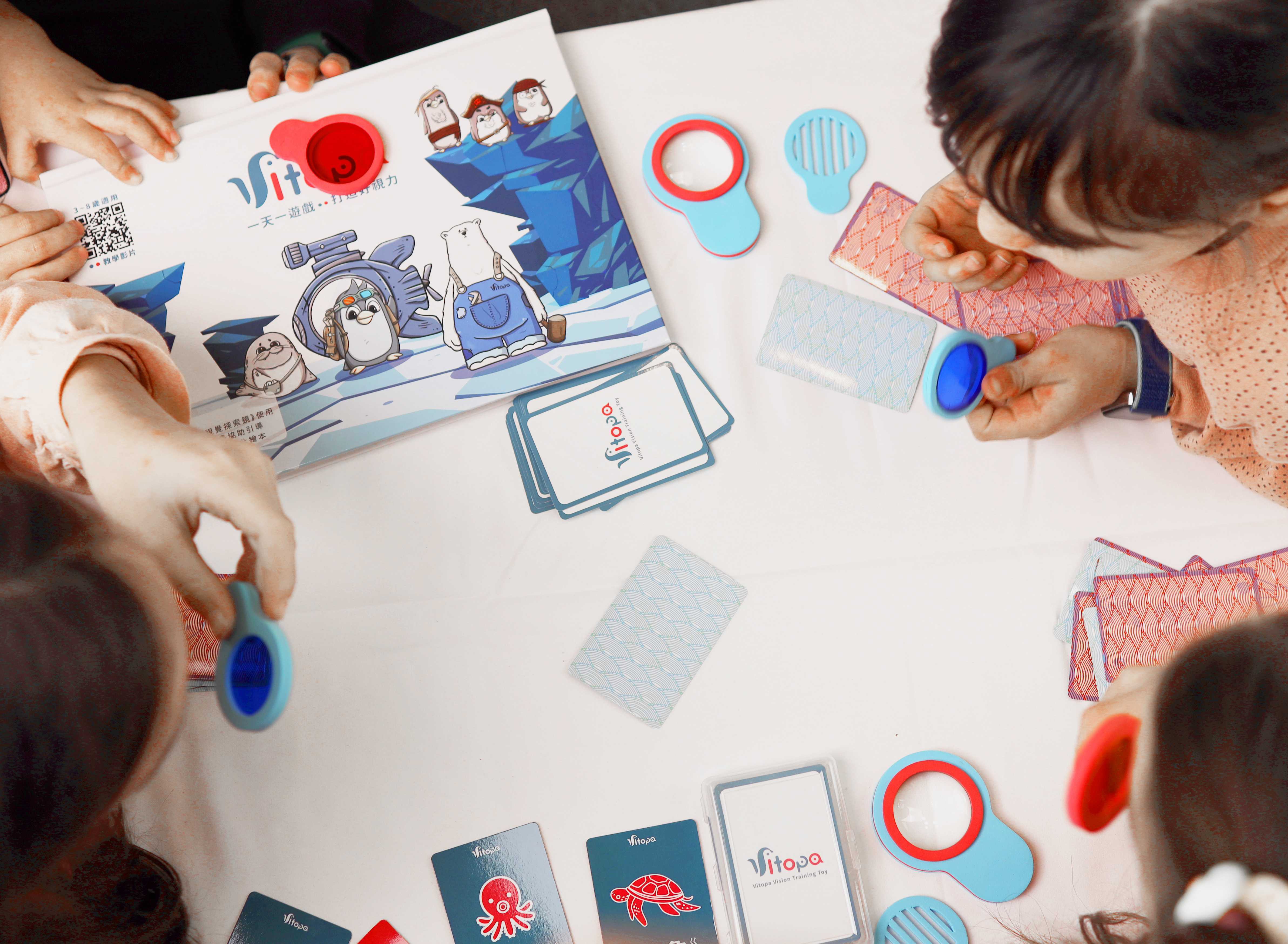
The product also includes ocean animal exploration cards and bilingual vocabulary cards, allowing children’s friends - and even parents - to join in. This way, kids can learn English and Chinese words while playing, adding both competitiveness and fun to the game.
To ensure the product’s practicality and user experience, the ToSky Design team collaborated with multiple ophthalmologists and cases of children with visual impairments for a 28-day usability test, meticulously recording data and analyzing feedback. Chien-Chen Lai, who spent five years developing the product, explained that each stage of the development process presented different challenges, especially during the experimental validation phase. He dedicated a significant amount of time to finding suitable cases for long-term observation and analysis, which was the most challenging part.
While studying at Taiwan Tech, Lai actively participated in various entrepreneurial competitions and courses. The most memorable was the “Illustration Design” course taught by Professor Szu-Wei Cheng, which not only focused on developing drawing techniques but also encouraged students to think critically and spark creativity. The course invited several renowned design entrepreneurs to share their practical experiences, which inspired Lai’s thinking and practice in design entrepreneurship. The Taiwan Tech’s Business Incubation Center also provided a wealth of support, including advisor referrals, business matchmaking, and startup resource integration. Under their guidance, Lai participated in competitions like “Taiwan Tech Young Entrepreneur Star” and the “Zhan Guo Ce National Innovation and Entrepreneurship Competition,” earning several awards.
Reflecting on his entrepreneurial journey, Lai candidly shared that the most valuable lesson he learned was “integration and communication skills”. As the founder, he had to play multiple roles: client liaison, product designer, vendor relations, marketing, sales channel management, and financial setup. “Each of these roles requires a different expertise, and I had to constantly learn from mistakes and communicate with people from various backgrounds,” Lai said.
The Vitopa Children’s Visual and Attention Development Kit is produced by local Taiwanese manufacturers, with EVA foam materials meeting the safety standards of the EU, the U.S., and Taiwan’s CNS certifications to ensure safety for preschool children. The team is also actively discussing partnerships with major occupational therapy centers and early intervention programs, aiming to customize the design and apply Vitopa in more professional educational or medical settings. The product is currently available for purchase on the Zeczec crowdfunding platform, with sales running until April 30th, having raised over 600,000 TWD.
Vitopa won the first prize in the Gen Z Innovation and Entrepreneurship Competition and the silver prize at the I DREAM Entrepreneurs Annual Conference. The first two generations of visual perception training products also won prestigious international design awards, including the Red Dot, iF, and IDEA awards, earning recognition from the industry and experts. Lai said that in the future, Vitopa will continue to expand with more customized themes, interactive modules, and props to offer children a richer and more diverse learning experience through play. He also aspires to continue his design work and develop more products that contribute to children’s healthy development. “I look forward to presenting more exciting creations in the future.”
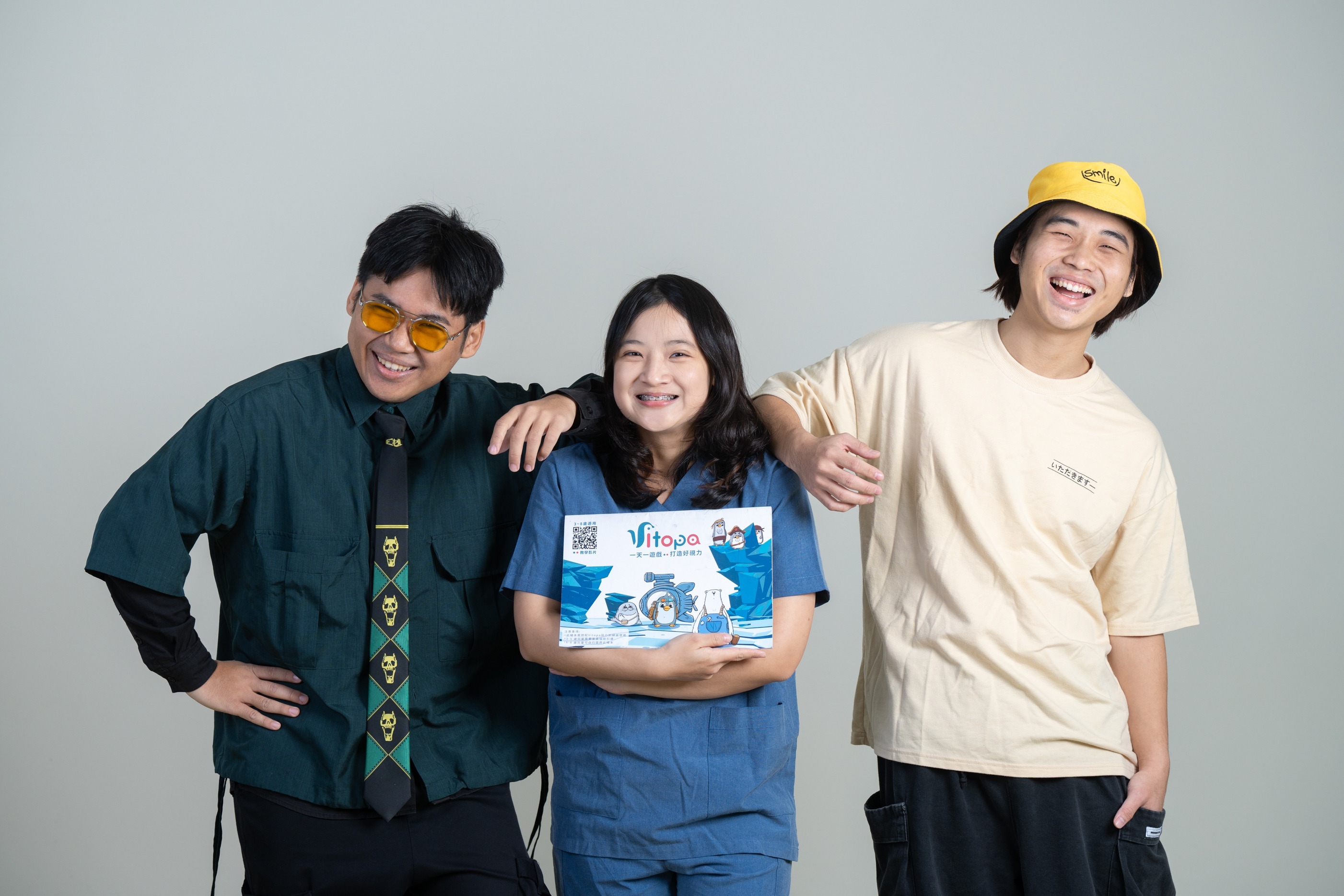
The Taiwan Tech’s Business Incubation Center-supported team, ToSky Design, is dedicated to addressing children’s visual perception and attention development. Founder Chien-Chen Lai (left 1) also looks forward to developing more products that contribute to children’s healthy development in the future.
